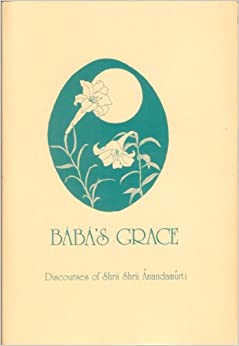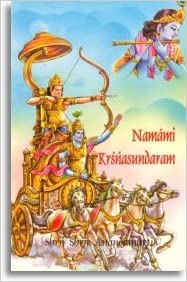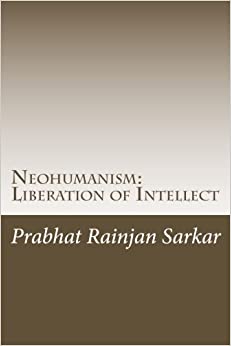Background
Prabhat Ranjan Sarkar was born on May 21, 1921, in Jamalpur, Bihar. He was the son of Lakshmi Narayan Sarkar, a railway accounts clerk, and Aabharani Devi.

Prabhat Ranjan Sarkar
Prabhat Ranjan Sarkar
Prabhat Ranjan Sarkar
Prabhat Ranjan Sarkar while in army training during World War II
Prabhat Ranjan Sarkar (down low, extreme left) with his parents, Shrii Lakhsminarayan Sarkar and Abha Rani Sarkar, elder sister, Hiraprabha Sarkar, and younger brothers, Sudhangashu Ranjain and Manas Ranjain Sarkar
Prabhat Ranjan Sarkar
Prabhat Ranjan Sarkar
Prabhat Ranjan Sarkar
Prabhat Ranjan Sarkar
Prabhat Ranjan Sarkar
Prabhat Ranjan Sarkar
Prabhat Ranjan Sarkar














(Ánanda Márga: Elementary Philosophy This was the first-pu...)
Ánanda Márga: Elementary Philosophy This was the first-published of the more than 250 books of Shrii Shrii Ánandamúrti and continues to hold its place as an introduction to his entire philosophy. Its specialty is the use of formal, though simple, logic to make an utterly convincing case for the existence of Supreme Consciousness and the need for spiritual practice.
https://www.amazon.com/Ananda-Marga-Elementary-Shrii-Anandamurti/dp/8172521170
1967

(A collection of 38 devotional discourses about the spirit...)
A collection of 38 devotional discourses about the spiritual seeker and the relationship with the Divine.
https://www.amazon.com/BABAS-GRACE-Discourses-Shrii-Anandamurti/dp/0884760014
1973

(Here the author has compares different philosophies to th...)
Here the author has compares different philosophies to the life and personality of Lord Krsna. The author sets out the two distinct facets of Lord Krsna's personality: Vraja Krsna, the lord of devotion, and Párthasárathi Krsna, the lord of karma yoga, ceaselessly engaged in the battle against injustice.
https://www.amazon.com/Namami-Krsna-Sundaram-Shrii-Anandamurti/dp/8172521111
1981

(All aspects of life, namely physical, psychic, and spirit...)
All aspects of life, namely physical, psychic, and spiritual, carry equal significance. To preserve balance in the psychic and spiritual spheres, there must first be a balance in the physical realm. However, amidst all the rhetoric and gospels of peace, there are many places in the world where even the necessities of life are not available. Prabhat Ranjan Sarkar wants us to shoulder this responsibility of addressing this need through the application of PROUT so that all the people of the world will have greater opportunities and scope for the elevation of the mind and spirit.
https://www.amazon.com/Neohumanism-Liberation-Prabhat-Rainjan-Sarkar/dp/1463755791
1987

(The science of psychology, as studied and practiced withi...)
The science of psychology, as studied and practiced within the traditions of yoga and Tantra, begins with our chakras (or plexi, psycho-spiritual centers) and the various glands associated with each chakra. The development of these structures is influenced by all our past actions and by a range of environmental factors that, like the mind itself, go far beyond what is conventionally contemplated by psychology.
https://www.amazon.com/Yoga-Psychology-Shrii/dp/8172521138
1990

(Microvita is entities that come within the realms both of...)
Microvita is entities that come within the realms both of physicality of psychic expression. They are smaller and subtler than physical atoms and subatomic particles, and in the psychic realm, they may be subtler than mind-stuff. The author predicts that they will soon be recognized by conventional science.
https://www.amazon.com/Microvitum-Nutshell-Prabhat-Ranjan-Sarkar/dp/B007HEFPN4
1991
Prabhat Ranjan Sarkar was born on May 21, 1921, in Jamalpur, Bihar. He was the son of Lakshmi Narayan Sarkar, a railway accounts clerk, and Aabharani Devi.
In 1939 Prabhat Ranjan Sarkar attended Vidyasagar College of the University of Calcutta. However, when his father died, he had to quit his studies to support his family.
Prabhat Ranjan Sarkar began practicing meditation on his own at the age of four, and even as a young child, gained a reputation for his uncommon knowledge and wisdom. He has been attracting others by his deep love for humanity and guiding them along the path of self-realization. Recognizing him as a spiritually realized master, his followers called him Shrii Shrii Anandamurti, which means "He who attracts others as the embodiment of bliss," or just "Baba" (father). Those who followed his teachings found their lives transformed as they overcame the weaknesses and negative tendencies of the mind to experience deep peace and bliss within. Inspired by his selfless example, they focused their efforts on serving society and elevating the oppressed.
Prabhat Ranjan Sarkar quit his studies after the death of his father, and, from 1944 to 1955, he worked as a railway clerk in Jamalpur, Bihar. In 1955 he formed the first organization called Ánanda Márga Pracáraka Saḿgha, the Society to Propagate the Path of Bliss, with the twin purposes of spiritual progress and social change. Sarkar began training missionaries to spread his teachings of "Self-realization and service to humanity" all over India and later throughout the world. Reflecting the broadness of his universal vision, Ánanda Márga Pracáraka Saḿgha subsequently became a multi-faceted organization with different branches dedicated to the upliftment of humanity through education, relief, welfare, the arts, ecology, intellectual renaissance, women's emancipation, and humanistic economy. In 1963 he also established the Education, Relief, and Welfare Section, which runs schools, orphanages, medical units, retirement homes, free kitchens, drug rehabilitation centers, and homes for shelterless women throughout the globe. The Ánanda Márga Universal Relief Team has rendered disaster relief in the fire, flood typhoon, earthquake, and war, and received numerous citations from the United Nations, the Red Cross, and many governments. Also, before Sarkar died in 1990, he founded Ananda Marga Gurukula, an educational network to preserve and develop his legacy through research, teaching, and service.
As a writer, Prabhat Ranjan Sarkar wrote over two hundred books on subjects as diverse as mysticism, cosmology, sociology, history, education, yoga, medicine, ethics, psychology, humanities, linguistics, economics, ecology, farming, music, and literature. He taught the science of meditation for self-realization directly and indirectly to millions of people. Sarkar not only wrote long philosophical treatises but enriched as well with children's stories, fiction, comedy, and drama. His most dramatic contribution is the 5018 songs known as Prabhat Samgiita (Songs of the New Dawn), which he composed from 1982. These songs express the spiritual feelings and universality of the human heart. Most of the songs were written in Sarkar's mother tongue, Bengali, and Bengali scholars have bestowed on them the highest praise for their poetic and symbolic expression.
Prabhat Ranjan Sarkar was widely known as a writer, philosopher, and composer. Sarkar was the author of 5018 songs and more than two hundred books. His books were translated into all the world's major languages, and his unique blend of historical perspective and social commentary has been the inspiration for social activists. He has attracted a following in more than 130 countries. Besides, in 1955 Prabhat Ranjan Sarkar formed the organization, Ánanda Márga Pracáraka Saḿgha. In 1963 he established the Education, Relief, and Welfare Section and the Ananda Marga Gurukula in 1990.
(The science of psychology, as studied and practiced withi...)
1990(Ánanda Márga: Elementary Philosophy This was the first-pu...)
1967(A collection of 38 devotional discourses about the spirit...)
1973(Here the author has compares different philosophies to th...)
1981(Microvita is entities that come within the realms both of...)
1991(All aspects of life, namely physical, psychic, and spirit...)
1987The expansive philosophy that has influenced the work of Ananda Seva Mission was first put forward by Prabhat Ranjan Sarkar. Through his actions and teachings, he inspired many people to develop their potentialities and take on active responsibility for humanity's welfare.
The cosmology of Ananda Marga philosophy centers around the Cosmic Cycle - the Cycle of Creation, or Brahmacakra. Sarkar described the cosmological flow as being from unlimited consciousness to limited consciousness and back to limitless consciousness, attained by meditation.
According to Sarkar's philosophy, the individual mind composes of five layers called Kosas, which means "layer of the mind." There are five layers of the human mind: Kamamaya Kosa ("layer of desire") or "Crude Mind," Manomaya Kosa ("layer of thinking"), or "Subtle Mind," Atimanasa Kosa or "Supramental Mind," Vijinanamaya Kosa ("layer of the special knowledge") or "Subliminal Mind," and Hiranyamaya Kosa ("golden level") or "Subtle Causal Mind." Its natural means of development is through diet and physical exercise. In Ananda Marga practice, it also develops through asanas, Tandava, and Kaoshikii.
Sarkar's Biopsychology reimagined the traditional tantric belief in chakras as being due to interactions of subtle energies through nerve plexuses. He believed this connected the endocrine glands of the neuroendocrine system with a psychic part of the body. The philosophy of Ananda Marga considers The human body is composed of the same five fundamental factors as the rest of the universe (the physical body is a part of Saincara, whereas the mind is a part of Pratisaincara). Every factor is distributed throughout the body but is managed by a controlling nucleus or chakra. The chakras are like substations of the mind, each controlling their own assigned area, and just as the mind functions directly through the brain, the chakras operate through their own physical counterparts, the endocrine glands.
In the field of science, Sarkar introduced the theory of Microvita, which has subsequently captured the interest of scientists around the world. In a series of groundbreaking discourses, he struck at the heart of conventional physics and biology, pointing out that the basic building blocks of life are Microvita, emanations of pure consciousness. This theory provides a link between the worlds of perception and conception. It also implies that the distinct disciplines of physics, biology, and mathematics will merge into one science of understanding the real nature of the universe.
A central point in Sarkar's philosophy is the concept of Sadhana. He described Sadhana as a practice for "the transformation of fearful love into fearless love." For Sarkar, Sandhana was concretized by the practice of meditation. He recommended to his disciples the daily practice of individual meditation and the weekly group meditation.
In the field of ecology and environmental awareness, Sarkar propounded the philosophy of Neohumanism, expanding the spirit of humanism to include love for animals, plants, and the inanimate. He started a global plant exchange program to save and propagate thousands of plant species and encouraged the establishment of animal sanctuaries in various locations around the world.
For the collective welfare of the entire universe, Sarkar propounded Prout (the Progressive Utilization Theory), which stands for the maximum utilization and rational distribution of all the resources and potentialities of the world, physical, mental, and spiritual. Also, it stands the creation of a new, humanistic social order of harmony and justice for all based on Neohumanism, the principle of love for all beings of the universe.
Sarkar's demands for social justice, and his uncompromising moral stand against corruption and exploitation, brought about the opposition of particular vested interests, which resulted in the persecution of Ananda Marga and his own arrest in 1971 under false charges. During his seven-year incarceration, he survived a poisoning attempt by government officials and fasted on a liquid diet for over five years in protest. Ultimately acquitted of all charges by the high court, he was eventually released from prison in 1978.
Sarkar has put forth universal law, The Law of Social Cycle, which he found it necessary to have a society of Benevolent Intellectuals because he believed that the highest level of service that can be offered is an "Intellectual Service." Through good ideas, it is possible to not only establish an exploitation free human society, but it is also possible to help these benefits reach a broader section of our human society.
The philosophy of Sarkar reinterprets the general concept of culture by inserting it into a new universalistic outlook. He considered "culture is the collective name for different expressions of life, but all of society has the same culture. There are local variations in the mode or state of cultural expression, but the expression is universal. These local variations are called customs. Thus local modes of expression are customs, but the expression itself is culture."
Quotations:
"Knowing oneself is the real knowledge, serving all with the ideation of God the real action, and the vow to please God the real devotion."
"Cosmic Consciousness abides in the very sense of existence, in one's very heart’s desire."
"You are never alone or helpless. The force that guides the stars guides you to."
"God hides inside us, and everyone is looking for Him."
"Good is that which elevates the mind, and evil is that which degrades the mind. Social virtue and vice are temporal entities. These things have nothing to do with a person's relationship with the Supreme."
